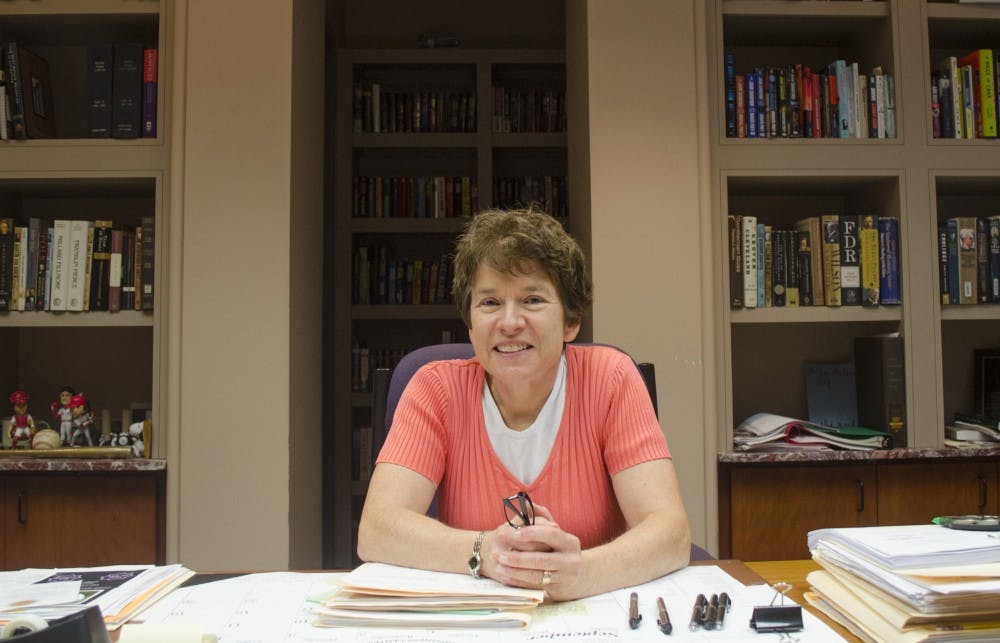With Homecoming Weekend approaching, it's important for students to be aware of their legal rights and area laws.
One hundred and fifty people were arrested on-campus for liquor law violations in 2014, according to Ball State's 2015 Security Report. Additionally, 531 people received disciplinary referrals for liquor law violations.
Marianne Vorhees, a Delaware County Circuit Court 1 judge and Ball State alum, gave students advice on how to act in certain legal situations. She graduated from Ball State in 1980, then graduated from University of Notre Dame law school in 1983. She was first elected to her position in 2004 and re-elected in 2010.
Q: What advice would you give to students in general?
A: People need to be informed. Ignorance of the law is not a defense. They need to know as much as they can about legal rights ... Get an attorney if pulled in for questioning. There’s pressure on you. You’re concerned about graduating and getting a job. Definitely seek legal advice, at least talk to your parents or a trusted person. Without advice, it just gets worse.
Q: What should students know when they get pulled over or stopped by the police?
A: Just follow the directions. No furtive movements—don’t bend over, [don't] reach behind you. Do what they say. Don’t try to say, "Don’t you know who I am?" or something like that, [officers] don’t like to be threatened. I’m not even allowed to say that I’m a judge.
Q: Do you see a lot of college students in court?
A: I don’t do city court, but every now and then. [Students who go to court should] be careful not to wear slogans or something humorous. Some judge might take offense. Go in with a respectful attitude … a positive attitude goes a long way. We notice.
Q: Why did you stay in Muncie to work?
A: I liked the big city, but I missed Muncie. I missed the size, my family, and being a part of a community. I had different ties here that I didn’t feel anywhere else.
Q: What were you involved in at Ball State?
A: I played softball. I was on the varsity team for four years. I was in the first class of female athletes with scholarships from Title IX [the ruling that federally funded education programs couldn't discriminate based on gender]. We didn't have official varsity letters then, so I got one at a ceremony a couple years ago ... I was also in the Honors program. That was what really helped me see I was interested in law school. It intellectually open up my horizons.
Q: Recount your time at Ball State.
A: I have lots of good memories. I’m really proud of Ball State. They've done a lot of things to increase its prestige and academics. It is so much more selective than when I went there. They do a great job.





